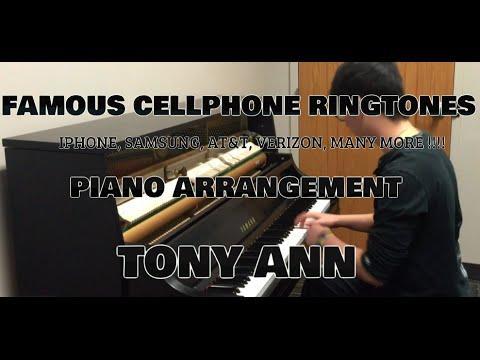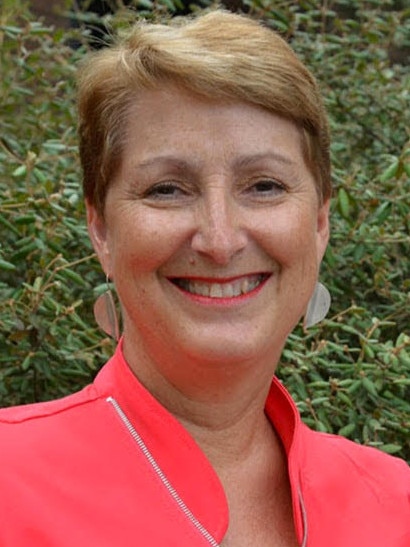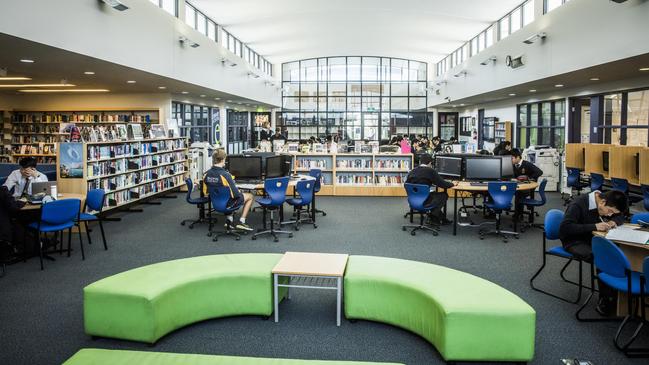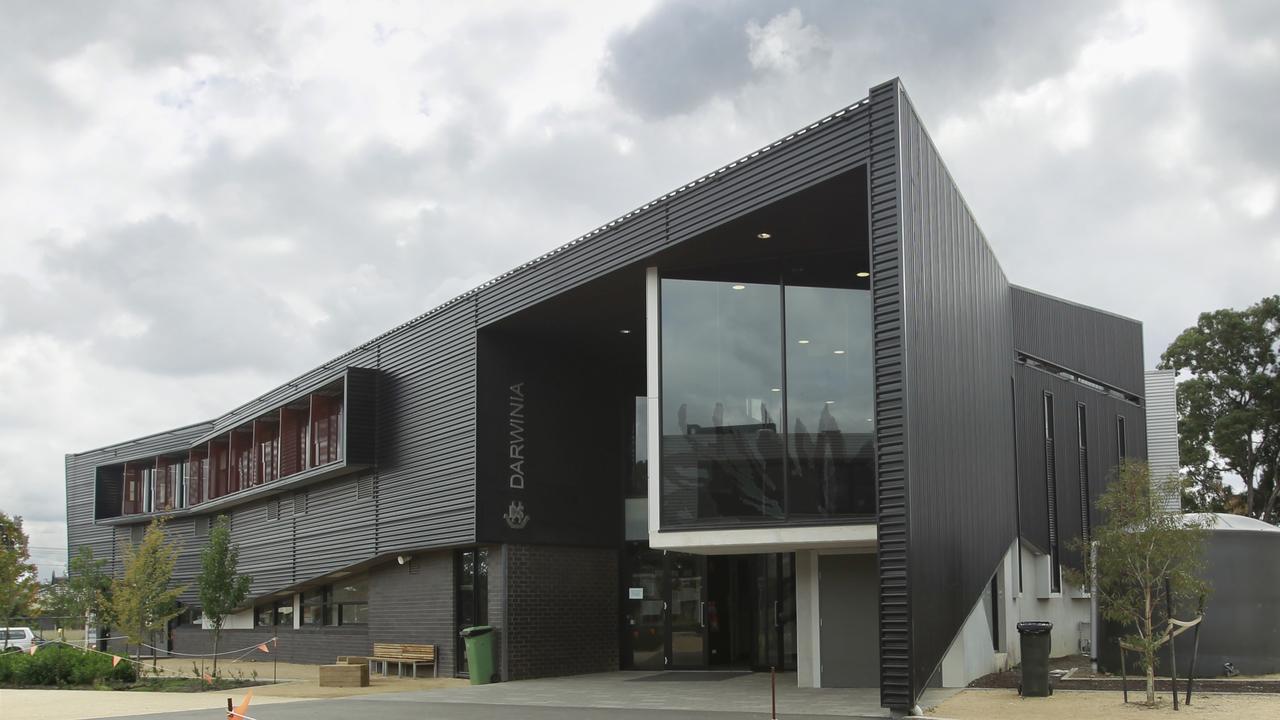Accelerated learning programs: what do they all mean?
If your child is academically above average, how do you know what school or program is best for them? We speak to the experts in an attempt to de-code the baffling education buzz words around the field of gifted education.

Education
Don't miss out on the headlines from Education . Followed categories will be added to My News.
There are a lot of buzz words in education: engagement, higher-order learning, inquiry, resilience, scaffolding to name a few. Academic acceleration is among them.
Most primary and secondary schools offer some form of academic extension for bright and gifted students but what does it all mean? If your child is academically above average, how do you know what school or program is best for them? Are schools properly equipped to teach our brightest students?
Dr Leonie Kronborg is a senior lecturer in education at Monash University and an expert in the field of gifted education. She says it can be difficult for parents to navigate the proliferation of programs available in schools and make the right choice for their child.
VET V HIGHER EDUCATION: WHAT’S THE DIFFERENCE?
GIFTED STUDENTS FACE ACCELERATED PROGRAM CAP
REWARDS, CHALLENGES OF RAISING CHILD WITH HIGH IQ


While many schools offer academic extension programs, not all schools have teachers with the higher qualifications necessary to teach gifted children, Dr Kronborg says.
She says all co-ordinators of academic acceleration programs should have a Masters in Gifted Education, but this isn’t the case.
“We have over 100 years of research and study on high ability grouping and accelerated learning that tells us these are two of the most effective strategies that can be used with teaching gifted kids but our (Education) department doesn’t want to face it because they are trying to say that every teacher is capable of teaching gifted kids,” Ms Kronborg says.
“I know they are not. That’s what’s really difficult for the parents.”
Ms Kronborg says many parents are concerned their gifted kids are not being provided for at school. But, she says there are things parents can do if they are worried or are looking for the right school for their child.
“I would be looking to see if the school has a policy for gifted education. Are there any teachers who have got studies in gifted education?” Dr Kronborg says.

She suggests talking to parents of older children at the school and asking them if they are happy.
Signs that things are going well include if the child is happy to go to school, if they talk about what they are learning about and bring things home that they have been working on, she says.
“You need to be looking for indicators when your child is not happy going to school. And if there are problems that arise, or any bullying incidents, how does the school manage that?
“If I was looking at high schools, I would be looking at Year 12 results.”
So, what is the difference between the academic programs available at schools?
SEAL ACADEMY
SEAL is an acronym for Select Entry Accelerated Learning and the Academy is an association of accredited like-mind Victorian schools that offer a SEAL program.
SEAL was once the accreditation given to select secondary schools by the Victorian government to teach gifted students, but in 2014 the government stepped away from its role in accrediting SEAL schools.

A number of schools then came together to set up The Academy of Accredited SEAL Schools, which now includes 38 Victorian schools.
Academy chairperson and Balwyn High School principal Deborah Harman says the Academy is a group of schools that “have taken the responsibility and the opportunity to keep the standard of SEAL programs for schools”.
“If parents are looking for an opportunity for deep enrichment, acceleration, learning with a group of like-minded peers … Academy schools are rigorously monitored and evaluated to provide that experience,” Ms Harman says.
Many, but not all SEAL programs accelerate learning of years 7-10 into three years instead of four to extend VCE studies from Year 10.

There are no extra costs and to gain entry, students must sit an entrance exam. These exams are aimed at high achieving students, but Ms Harman says that at Balwyn High School, selection is not based on exam results alone.
“We test them, we get the results back, as a group we look at them and then we invite probably between 60-70 students to interview because it’s not just about academic ability of the students … they have to be able to work with others,” she says.
ACE PROGRAMS

Most Victorian secondary schools outside of the SEAL Academy offer some form of accelerated learning opportunities for bright and gifted students.
ACE is usually an acronym for Accelerated Curriculum and Enrichment learning, but it can also be Advanced Curriculum Extension or Accelerated Cluster Education, among others.
Mostly, ACE programs are structured as the school’s own select entry program where, to gain entry, students are tested and may also assessed on primary school reports and NAPLAN results.
One important differentiation is that ACE programs don’t always offer acceleration but students are generally grouped with like-minded peers into ACE classes or form groups.
Schools also set their own program, which are not overseen in the same way SEAL Academy programs are. This does not imply that they are of lesser value, just that there is no external organisation involved.
G.A. T. E. WAYS
For 25 years GA. T. E. WAYS has offered programs for gifted and talented children, mostly at the primary level, across four Australian states and one territory.
Unlike the SEAL program, G.A. T. E. WAYS is a private enterprise and there are extra costs associated with participation, which range from $103 for a single day to $232 for a four-day session and $552 per semester for membership to its Brainwaves Club.

G.A. T. E. WAYS director Jill Lawrence explains that because programs are geared towards highly-able and gifted children and usually occur during school time, students need to be nominated by a school co-ordinator to take part.
“Various selection criteria are taken into account, including the curriculum focus of the program and the suitability of the individual for that particular program,” Ms Lawrence says.
“Once in the program children have the opportunity to work with an expert in a particular field and with like-minded peers.”
Ms Lawrence says that, as well as being focused more at the primary level, G.A. T. E. WAYS differs from SEAL and other ACE programs because it is not a full-time school-based program and should be viewed as complementary to the regular curriculum.
Regardless of whether your child is academically gifted enough for any of these programs, perhaps Leonie Kronborg sums up the dilemma best.
“Going to school is actually a joy and not something you have to drag your kids to each day,” she says.
“As a parent, I wouldn’t be concerned if my child was bright or gifted if I felt they were educationally being provided for.”
MINECRAFT NOW AT VICTORIAN SCHOOLS


